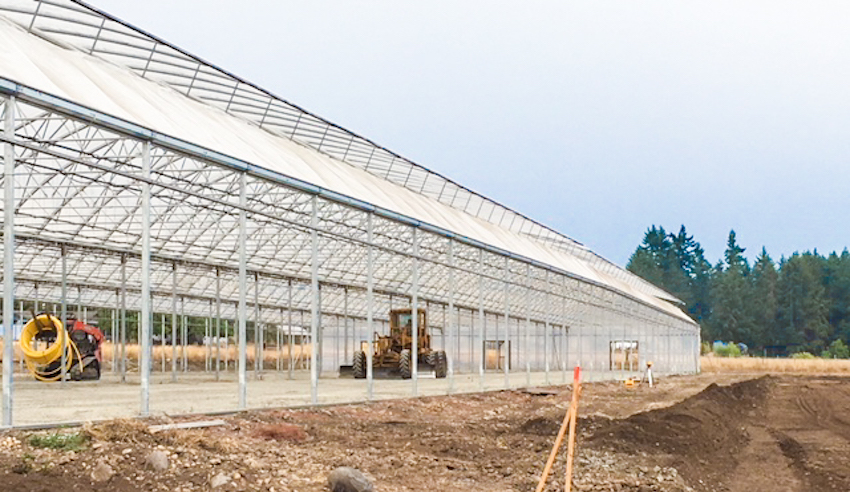
From Wholesale to Retail

This series — Fresh Perspectives — provides tips from Generations X, Y and Z. Jason Witherow is a member of GPN’s 40 Under 40 Class of 2017. For more information, visit www.gpnmag.com/40-under-40.
In 2001 I was 17 — but in no way was I a typical 17-year-old kid. I was starting my own business — a wholesale nursery! I remember how hard it was building this from the ground up.
Those first few years were a struggle. I remember growing entire crops only to throw them away because no one wanted to buy my product. But the economy was booming and with a ton of hard work and even more patience, things began to turn around for me.
Eventually we expanded and things were looking good! We had built a reputation grounded in good customer service, good ethics, quality product and affordable prices. It seemed success was all that lay ahead, and I put the pedal to the metal and went cruising down that road.
We had fairytale springs back to back, and the economy was booming. The end
consumer had money to burn, and the stores and landscapers had orders to match this insatiable demand for plants. We took full advantage of this booming economy, and that was the year we chose to expand our greenhouses.
And then the recession started. I tried to ignore it. I wanted to believe that things were being over hyped — that things could not really be that bad. I believed that (in my area at the very least), there was still more of a demand than a supply. So many nurseries and wholesalers had sold their land when the economy was good that I truly thought we would be OK. I hoped the experts were wrong.
Blame it on youth, blame it on willful ignorance, but I tried to keep my head in the sand. Eventually though, I could no longer ignore the growing problem that was knocking on my door.
It started slowly, smaller orders — slower payments. The landscapers were the first to stop ordering. People were cutting back on their spending and that was (for our industry) seemingly one of the first places the end consumer cut. Then the orders dwindled even more.
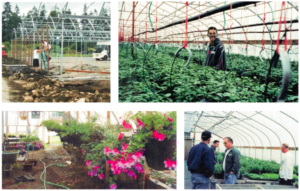
At the peak of the season that year (April), it snowed. Every nursery and garden center’s worst fear had collided over my young head that year. It was, in fact, the perfect storm to balance out the fairytale springs we had in the past. I found myself once again sitting on entire crops.
We cut back where we could. Summer and fall crops were the first things to go — these were the slower times when the landscapers (who were no longer shopping) had often dominated. But it was not enough. I took on a second job to pay the bills and keep my life’s work going. I pushed through as best as I could.
Then a mentor of mine stepped in and planted a seed in my head. Why not open a retail facility — to sell off my crops that were otherwise just going to sit? I knew my business, my life’s work, was sliding toward a cliff, and once we went over there would be no going back.
I knew that I had to make a choice and I had to make it quickly. But at what cost?
As a wholesaler, transitioning to a combined retail/ wholesale facility was a gamble. I knew I had to tell my wholesale customers what I was doing, and I had to be prepared to lose some of them, as many now saw me as competition.
Starting Retail
In 2009 I finally made the decision. I would open a retail facility. I did have those conversations with my wholesale customers, and I did lose some business. But my fingers were crossed that it would be worth it.
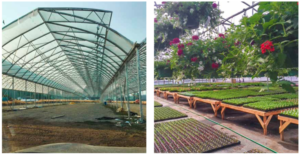
Before we did this I always thought starting a garden center would be easy enough; I had a supply of quality plants and a great reputation as a wholesaler — wasn’t that enough? Boy, was I wrong.
As it turns out, a garden center was much, much harder, and signi cantly more work to open than a wholesale growing operation could ever be.
My first hurdle right off the bat was my location. We are off the beaten path. Being outside of the main road through any town is a huge disadvantage to a retail setting.
Luring the customers in and then keeping their business proved to be a challenge. We were a new garden center on the scene, and our area already had an established garden center that was known statewide and had been around for decades.
The next hurdle was (and still is) parking. Those first few years in retail (the lean years) we had eight parking spots. It is hard to get customers in the door when they have nowhere to park. There were times people would start parking on the side of the road to come in and shop. Needless to say, this was a problem that needed to be solved quickly.
By far the biggest thing standing in our way was branding. How do you present yourself to the community? Do you come off as a cheap wholesaler? A high-end garden center? Somewhere in between?
I was beginning to see just how difficult opening a retail garden center would be. And I have no shame in admitting that I failed on more than one occasion with many of these issues. I was lucky enough to be a part of a community that fully supported my new venture, no matter the bumps and hiccups.
These days the economy has (thankfully) rebounded, but those hard lessons resonate quite loudly in our facility. We try our best not to take the good years for granted because we know there will always been lean years and you must be prepared to weather them.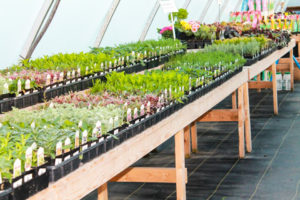
As a company we were lucky enough to survive the Great Recession, but we still face many of the same challenges in our retail lives. As we prepare for the 2018/2019 season we see that our retail facility is old and in need of upgrading (not to mention that it is too small). We are still off that same beaten path and, even after nearly 10 years of doing business, many people still don’t know we are around. And parking is still a huge problem.
Looking Ahead
In 2016 we were fortunate enough to be able to purchase a 45-acre farm right on the main road to alleviate these issues. Our dream is to move our facility
out to this farm! Our first hurdle in that road is permitting. But as we have learned in the past, hard work and a bunch of patience will get us through even this.
I think the key lesson the recession taught me — taught everyone — is we cannot remain static. This world evolves every day, be it financially, in our personal lives or politically, and to withstand these changes we must remain fluid too.
Had we remained solely a wholesale operation, it is very likely we (like so many others) would not be in business today.
I see so many people start their own small businesses with this vision of how they want it to be, and they have a clear and concise path to achieving these goals. I see so many of these same businesses fail, and it is mainly because so many of them are unprepared to make these changes to keep up.
My hope is that those people, both in our industry and others, will learn from the lessons of the recession but also be able to move past them.
If I could offer any advice to any entrepreneurs here it is:
- Make your business decisions based on logic. In our industry especially, you have to be prepared for those lean years.
- Community is vital; without the community’s help and support a business cannot thrive. Be sure to give back whenever and wherever you can. These people are not just your customers but are your friends and neighbors too.
- Get yourself a good banker. To survive those bad years a good banker is vital. We have been fortunate enough to have a banker that not only understands our business (nine months a year we “lose” money and three months a year we are pro table) but shares our vision and dreams for our business.
- Finally, a mentor is equally as important as a good banker, someone to be your sounding board and guide you. Mentors are an invaluable asset to any business.Here is to a fantastic 2018 to 2019 season!


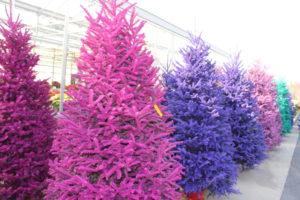
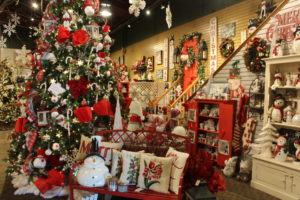
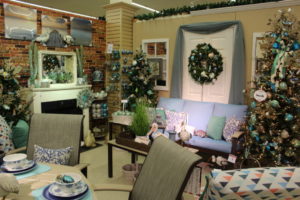
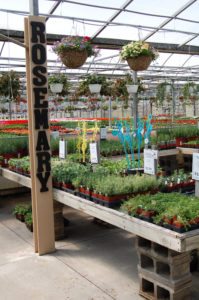
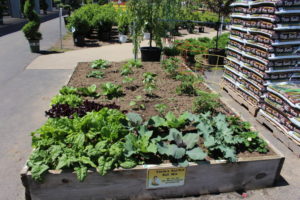
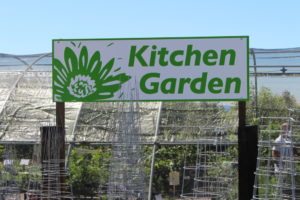
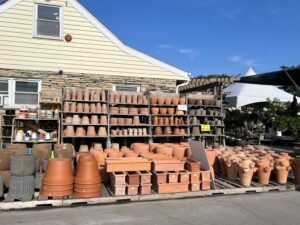
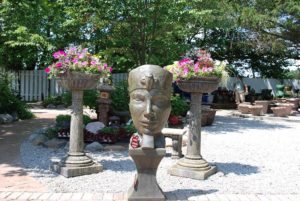
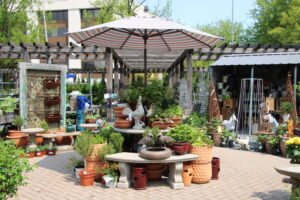
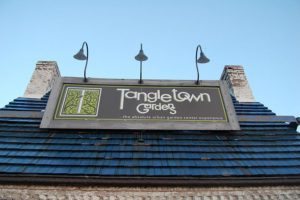
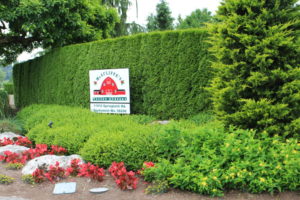
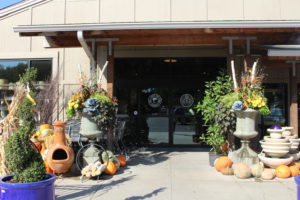
 Videos
Videos





